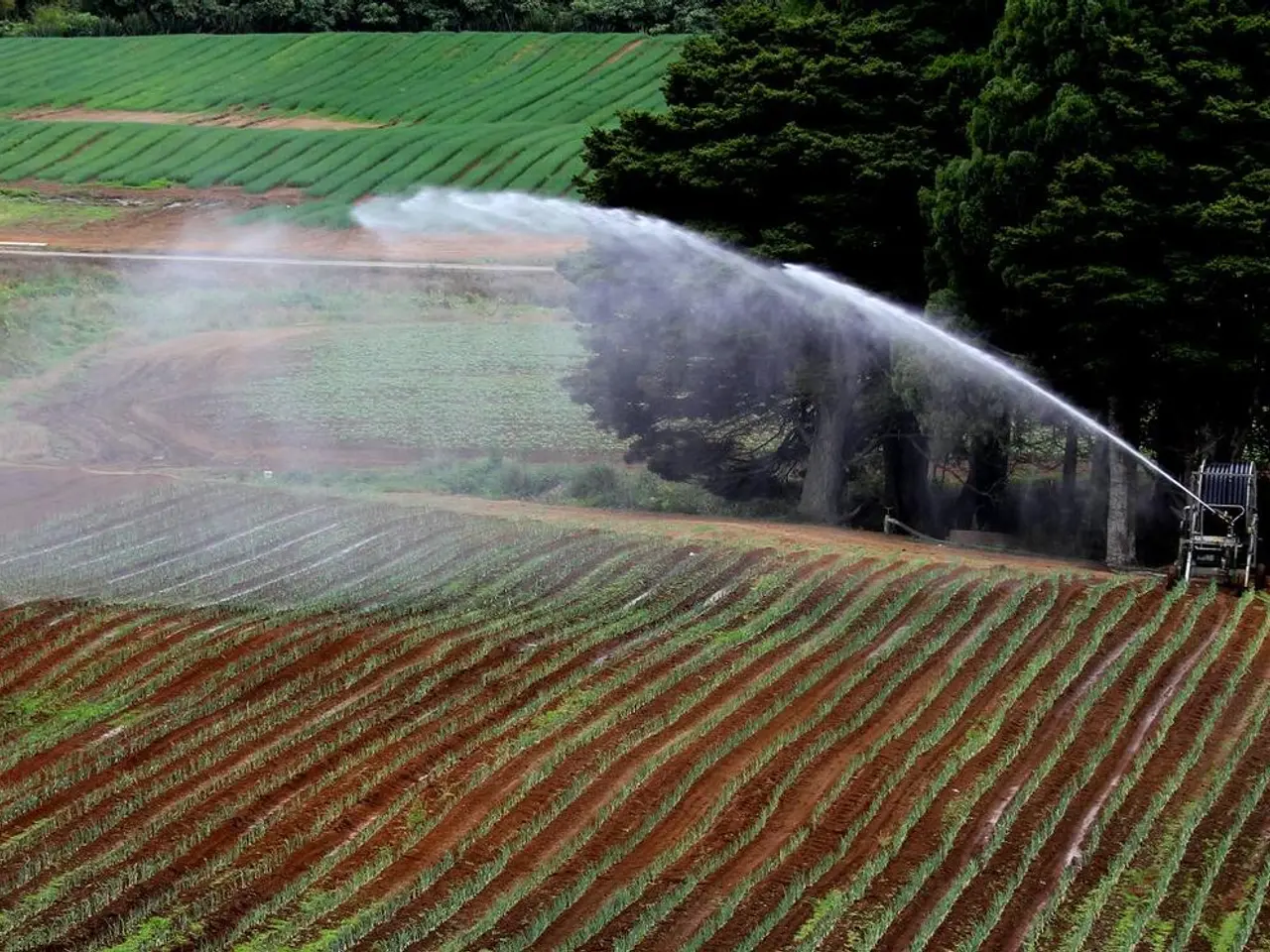AI's Impact on Traditional Industries Steering Them Towards Sustainability
Artificial intelligence (AI) is revolutionising traditional industries, including manufacturing, agriculture, life sciences, food and beverage, and finance, by optimising processes, enhancing quality, and enabling innovation. This transformation is already delivering tangible benefits, from predictive maintenance and precision agriculture to early disease detection and sustainable product development.
In manufacturing, AI is streamlining operations, automating routine tasks, and optimising energy use, resulting in safer workplaces and lower greenhouse gas emissions. Siemens, for example, employs AI-powered systems to predict equipment failures by analysing sensor data from machinery, allowing for proactive maintenance and reducing downtime. General Electric uses AI to identify production bottlenecks and increase throughput, while Amgen’s predictive analytics in biomanufacturing have improved batch quality and reduced error rates by 25% through real-time monitoring and machine learning.
Agriculture is another sector where AI is making a significant impact. John Deere’s technology uses satellite and sensor data to inform planting, irrigation, and pesticide application, optimising resource use and reducing waste. Benson Hill leverages AI to analyse genetic, environmental, and phenotypic data, accelerating the development of crops with improved drought tolerance and protein density. AI also enables automated identification and removal of weeds at scale, addressing a major challenge in large-scale farming.
The food and beverage industry is also benefiting from AI. Nestlé’s AI-driven genomics initiative is breeding Arabica coffee varieties resistant to climate stress, supporting the sustainability of global coffee supply chains. Mars uses generative AI to analyse vast consumer datasets, accelerating product development and enhancing consumer engagement.
Healthcare and life sciences are also seeing a transformation with AI. AI tools like Sybil, developed by MIT and Mass General, analyse CT scans to predict lung cancer risk up to six years in advance, far earlier than traditional methods. AI processes medical data to support faster, more accurate diagnoses and create tailored treatment plans, especially in areas like oncology and radiology. AI also automates eligibility checks and monitors adherence in clinical trials, reducing costs and speeding up the development of new therapies.
In finance, AI is improving security, operational efficiency, and enabling faster, data-driven decision-making. Mastercard’s AI system assesses transaction behaviour in real time, identifying and blocking fraudulent activity with over 90% accuracy.
The future of AI in traditional industries looks promising. Industries are increasingly adopting generative AI for product design, process simulation, and consumer insights, driving innovation and agility. AI will play a central role in addressing climate challenges, from optimising resource use in agriculture to developing climate-resistant crops and sustainable supply chains. Future systems will focus on seamless collaboration between AI and human expertise, maximising the strengths of both to solve complex industrial problems.
However, the integration of AI into traditional industries also presents challenges. Navigating the complexities requires a balanced perspective, recognising both the immense potential and the challenges ahead. Stakeholders can develop frameworks to mitigate risks and maximise the benefits of AI by fostering an inclusive dialogue.
It is an exciting time to be at the forefront of AI developments, pushing for a future where technology and tradition converge to create a more sustainable world. Ongoing advancements in AI, including improved algorithms and more accessible computing resources, lower the barriers to adoption and open up new pathways for innovation and growth. The author, deeply involved in the AI space, is optimistic about the role AI can play in transforming traditional industries for the better.
- Environmental science and climate-change research can benefit significantly from AI, as it can help predict and analyze weather patterns, monitor deforestation, and optimize resource management to mitigate the effects of climate change.
- The art of painting may also find an intersection with AI, with generative AI systems capable of creating unique pieces of art based on built-in artistic styles or even learning from the works of human artists.
- In the realm of scientific research, AI can serve as a powerful tool for analyzing vast amounts of data, accelerating the pace of discovery in various fields, including genomics and particle physics, by uncovering complex patterns and relationships that might otherwise go unnoticed.




